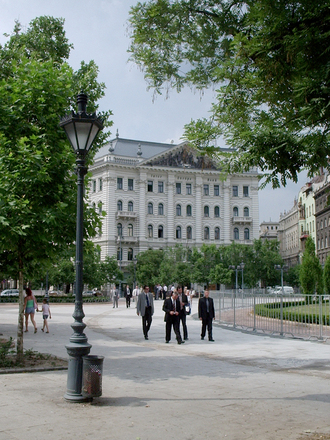If you are not part of the UPC 'conspiracy' (a small self-serving group which lobbies officials), then you are not invited

Summary: The people who are profiting from patent feuds, disputes, lawsuits etc. are still trying to muscle their will into European law and they keep the general public out of it by locking down (or pricing out of reach) their meetings where they influence/lobby decision-making officials
THE EPO is an incredibly abusive institution where the rich corporations get precedence (or preferential treatment). Seeing what kind of regime now runs the EPO (Battistelli and his mostly French buddies), this should not be surprising, especially if one examines their political connections (the equivalent of the Donald Trump party in the US).
The
UPC conspirators (basically a bunch of patent law firms that are still pushing for patent trolls and software patents) now
charge a "registration fee for this [UPC] webcast [which] is $299." To put it bluntly, you have to be pretty rich to just watch some silly webcast in which they strive to shape perception and steer policy. That's just another example of the "behind closed doors" policy that
we wrote about earlier this month. It's truly appalling and it resembles TTIP or TPP.
There are other new examples of discrimination against the poor or against the general public. Several hours ago in India, which
strictly disallows software patenting, the following
article was published. It speaks of a company that wants to use instruments against cancer; these would only be available for the rich, which raises
the same old ethical dilemmas (covered here in relation to the EPO before). To quote parts of the article:
"In the medical industry , you need to get multiple regulatory approvals. Approval from the US and EU authorities is important before you can ship products," says Mavely, who has funding from IDG Ventures and Accel Partners. His kits cost Rs 2,500 to Rs5,000, a fifth of what his US competitors charge. Mavely , who has filed for five patents, is ready to ship across the world.
[...]
"Solid clinical data, publications and early adopters who can vouch for your technology are key before you commercialize. This always takes longer than we anticipate," says Nandakumar Subburaman, founder and CEO of Perfint, which makes robotic devices to deliver cancer drugs directly to organs like the lungs or liver. Since 2005, the company , which holds four US patents, has shipped 100 units, and has been running on $33million in venture funding.
As we have seen at the EPO, some of these things, even if granted a patent and made "Finalist" by the EPO for EIA,
turn out to be fraudulent. But the bottom line is, patent systems and their effect on (or from) the public isn't quite what it often seems on the surface. Scepticism is needed here as this is science, not religion or dogma (like UPC).
⬆

